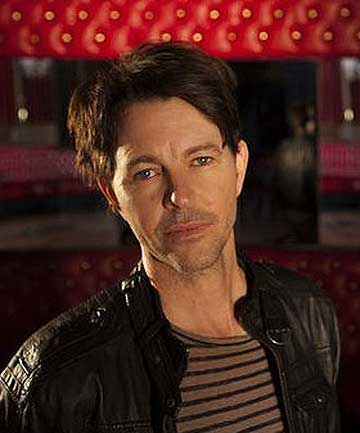
We sit down to eat dinner at the usual sort of time – 7pm or so – up in Brisbane. Bernard Fanning lives back there now with his young family after a year-and-a-half in Madrid. His daughter is now three, his son just one. His life, he says, “is full-on kid mode right now”.
Fanning and I are around the same age. Mid-40s or thereabouts. Similar if not identical interests. For example, there are, or were, two twin pillars in his charmed life, sport and music. Or music and sport depending on what’s happening and who’s playing and what he’s heard or discovered. Now that he’s married with kids he’s added family to that list. And since he’s been living in Madrid he’s added one more – food.
And so it is that many hours after we sit down at a swanky restaurant in his home town, where it is possible to eat eel, rabbit and various multicoloured foams, we finally stop talking and stagger off into the night. The next morning is somewhat rough. “Dusty,” he says, in a text. He’s back rehearsing by then, in closed sessions in a room at Bowen Hills; no visitors. Not even new best friends.
Some of the songs on Departures, the new Bernard Fanning solo album and the first since walking away from Powderfinger in 2010, are complex beasts. Very complex. They have odd rhythms and crooked, weird guitar parts. The record and the re-emergence is very much a new start for him. It is to say the least a departure from his 2005 debut, the extremely successful barefoot-folk album Tea and Sympathy, made when Powderfinger, Australia’s most successful rock band of the ’90s, were on hiatus, yet to split.